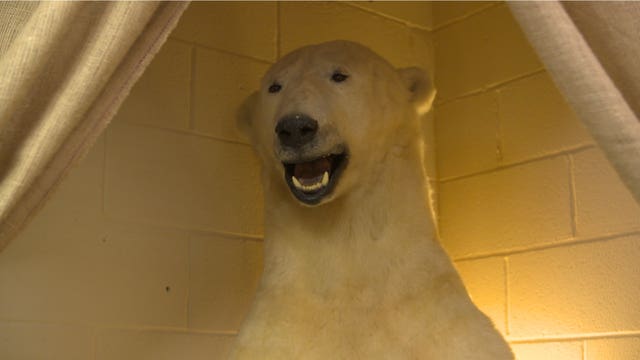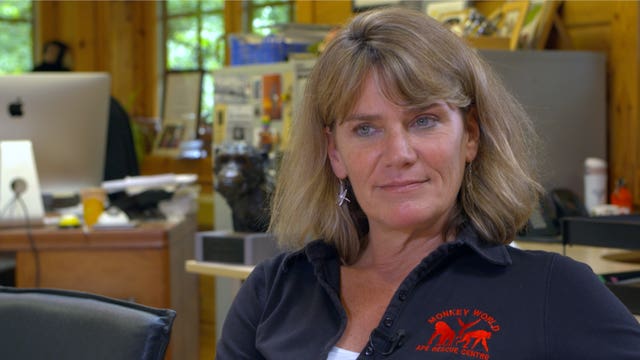
A polar bear that came to live at a zoo from the circus led to an overhaul in the way the animals are cared for in captivity, according to experts.
Misha displayed disturbing behaviours such as pacing until his feet bled and swaying his head after arriving at Bristol Zoo in 1979.
Before coming to the zoo, Misha is believed to have spent about 10 years confined to a travelling circus cage.
He paced four steps forward and four steps back – the shape of his old travelling wagon – despite having a larger enclosure at the zoo.
Hundreds of angry letters about Misha’s plight were sent to the zoo, with newspapers describing the bear as being “in a pit of despair”.

A BBC Inside Out West documentary has revealed how the bear’s state caused widespread controversy and led to calls for Misha to be released or put down.
Alison Cronin, who studied Misha and now runs Monkey World in Dorset, said issues raised by his case were widespread at that time.
“It’s the lack of an appropriate environment on just about any level,” Dr Cronin told the BBC.
“You lay down a concrete slab, you paint it white: voila you have the Arctic. And that was sort of the simplistic attitude of a lot of these old bear enclosures.
“It was a turning point in terms of the management of polar bears kept in captivity.
“Bear enclosures have improved and those that exist in UK today are quite spectacular actually.”
The zoo commissioned a number of studies into Misha’s behaviour and changes were made to improve his life but he never recovered fully.

Misha was euthanised in 1992 following the death of his companion Nina.
Andy Flack, a lecturer at the University of Bristol, said the zoo began replacing larger animals on its site with smaller, endangered ones.
“Misha’s behaviour had profound influence well beyond his death,” he told the BBC.
The polar bear is still a talking point at the zoo, where he is on display stuffed.
Simon Garrett, head of education at the zoo, said the bear’s life there had been “much better than he had in the circus he’d come from where he’d been confined to a travelling cage for we think about 10 years”.
“Whether you’re any age, when you see a polar bear like this it brings it home it’s real,” he said.
“He’s got a great legacy and we still use him now, and will into the future, for engaging people, teaching them about climate change and what’s going on with polar bears in the wild.”
:: BBC Inside Out West will air on BBC One West at 7.30pm on Monday and be available on iPlayer afterwards.


Comments: Our rules
We want our comments to be a lively and valuable part of our community - a place where readers can debate and engage with the most important local issues. The ability to comment on our stories is a privilege, not a right, however, and that privilege may be withdrawn if it is abused or misused.
Please report any comments that break our rules.
Read the rules here